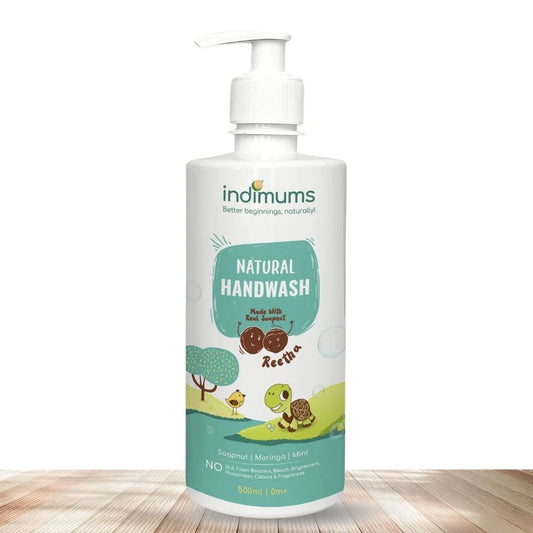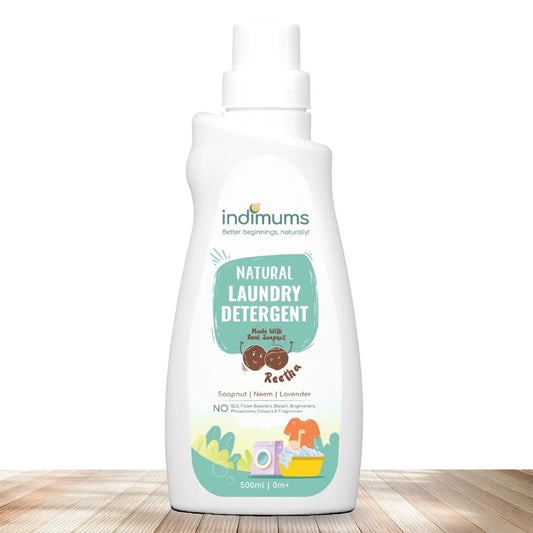As parents, we wish for nothing but the best for our little ones. Everything he does, from the first walk to the first word. One of the most significant considerations in baby care is a baby's exposure to safe and gentle products. This is where organic products come into play. In this blog, we will talk about why organic baby products benefit your baby and the environment.
What are Organic Baby Products?
These are those products made from naturally cultivated ingredients, not using synthetic pesticides, fertilizers, or genetically modified organisms. Examples of these baby products include food, clothing, skincare, and toys. These products are made to be kinder and more secure for tender skin and general health.
Advantages to Your Baby
- Gentle for Sensitive Skin
Babies have sensitive skin, which means many harmful chemicals that some non-organic brands use in their products can easily cause a reaction. No artificial fragrances, dyes, or harsh chemicals that cause an effect on the skin or even allergic reactions are included in organic baby products.
- Fewer Chemicals
Most traditional baby products are chemical-filled with parabens, phthalates, and sulfates. These are substances that are absorbed through the skin and have long-term health effects. Baby products will be made out of natural ingredients, hence reducing the amounts of potentially harmful chemicals that your baby might be exposed to.
- Nutrient-rich baby
Organic baby foods are produced from fruits and vegetables grown on fertile land without synthetic pesticides. As such, most of the time, organic baby food contains higher values of crucial vitamins and minerals essential for healthy growth and development.
- Better for Overall Health
Organic baby products will help to reduce health problems that are a result of being exposed to chemicals. When you choose organic, you take care of your baby's overall well-being and his or her ability to grow big, strong, and fit.
Benefits to the Environment
- Sustainable Farming Practices
These methods of farming are purposedly more sustainable and environment-friendly. They are designed to improve soil health, reduce pollution, maintain water availability, and preserve water. If you buy organic for your baby; you are supporting the practices that care for our planet.
- Less Chemical Runoff
Most of the conventional farming methods often involve artificial pesticides and fertilizers, which in most cases leach to the aquatic ecosystems, killing life, and contaminating the water used for drinking. Organic farming reduces cases of chemical runoffs and thus helps preserve clean water sources.
- Biodiversity
Organic farms are generally much more diverse and include numerous plants, insects, and even animals. Biodiversity is the backbone of a healthy ecosystem and aids in the maintenance of the balance of nature.
- Lower Carbon Footprint
Generally, it requires less energy and creates fewer greenhouse gases than conventional farming. Hence, by using organic baby products, you are reducing carbon emissions and fighting climate change.
Tips for Choosing Organic Baby Products
- Read Labels
The presence of certifications such as USDA Organic or other reputable organic labels ensures that the product has met stringent organic standards.
- Start with Basics
Start with organic baby food and skincare products. These are the products that directly touch your baby's skin and body.
- Shop Locally
Help the local organic farmers and producers by purchasing organic baby products locally from the markets or stores. It not only saves the environment but also helps in the growth of your local economy.
- DIY Options
Make some of the baby's products at home. For example, some organic baby wipes, use natural ingredients like coconut oil and essential oils.
Choosing organic baby products is the process of providing good health and well-being for your baby and the environment. You are keeping your baby toxin-free while buying products made with natural ingredients that have not been altered or spruced up using chemicals. After all, small steps can make a difference for your baby and the planet.




